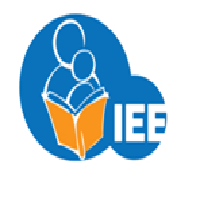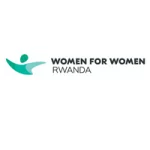IEE is a Rwandan local Education Not-For-Profit Non-Governmental Organization (NGO). Since 2005, in collaboration with partners, IEE complements efforts of the Ministry of Education/ Rwanda Basic Education Board, supporting education implementation for quality learning outcomes. IEE designs and delivers innovative programmes to address challenges to provision of quality education. IEE programmes range from: teacher development training and technical assistance, teaching and learning, curriculum and material development, research and evaluation, education policies and systems reform.
Website: https://www.ieerwanda.org
Inspire, Educate and Empower Rwanda
P.O Box 4712, Kigali Rwanda
Telephone +(250)788800330
www.iee.rw ieerwanda.directorate.org@gmail.com
Job Vacancy: Science Learning Advisors (SLA)
Number of vacancies: 10
Reports to: Project Coordinator
Opening date: December 20th, 2024
Closing date: January 10th, 2025
Duration of contract: 1 Year
About Inspire, Educate and Empower Rwanda (IEE)
IEE is a Rwandan local Education Not-For-Profit Non-Governmental Organization (NGO). Since 2005, in collaboration with partners, IEE complements efforts of the Ministry of Education/ Rwanda Basic Education Board, supporting education implementation for quality learning outcomes. IEE designs and delivers innovative programmes to address challenges to provision of quality education. IEE programmes range from: teacher development training and technical assistance, teaching and learning, curriculum and material development, research and evaluation, education policies and systems reform.
Context for vacancy
Inspire Educate and Empower Rwanda, (IEE) partnering with GIZ is implementing the Young Scientist Programme (YSP) in public secondary schools in Rwanda targeting specifically students at the lower secondary school level. The Young Scientist Programme seeks to stimulate students’ interest in Science, Technology Engineering, and Mathematics as a study field by fostering the use of hands-on teaching and learning approaches such as experiments and practical work to vivify students’ creative, innovative, research and problem-solving skills. Ultimately, the project aims to cultivate interest among youths in Rwanda to pursue science fields such as Engineering, Medicine, Biology, Environmental Studies, physics, or statistics at tertiary education levels. This will contribute to narrowing the existing gap in Rwanda’s human capital needs for STEAM professionals required to steer Rwanda’s growth trajectory toward Vision 2050 and beyond
Nurturing a passion for science can have far-reaching implications for a student’s future career prospects and existing evidence suggests that encouraging students to explore the practical applications of science subjects early on fosters a sense of purpose in their learning. Many high-demand lucrative careers, such as engineering, data science, and medicine, rely heavily on a strong foundation in the science field. Moreover, early stimulation of students’ interest in studying science could easily make students pursue careers in scientific fields, contributing to innovation and the progress of society.
The Young Scientist Program is to stimulate curiosity and interest in science subjects among Rwandan students at the lower secondary school level through the provision of multiple opportunities and exposures to practical science activities and experiments in Physics, Biology, and Chemistry. Ultimately, it is hoped that young people will consider this field as an area/opportunity for employment.
Purpose of the role
The IEE Science Learning Advisors (SLA) will be the Programmes focal person working with and facilitating the coordination of school clusters comprised of a minimum of 5 schools in the target districts of operation. The SLA will be responsible for providing technical oversight of the Train and build teachers’ capacity for effective science lesson delivery through Continuous Professional Development (CPD), particularly for Physics, Chemistry, and Biology at the lower secondary school education level. The training of teachers will focus on pedagogy-content-knowledge (PCK) aligned with Physics, Chemistry, and Biology (PCB). Teachers will also be trained in how to use simple experiments to teach science concepts while engaging students.
Major Responsibilities:
Capacity Building and Technical support for Science Teachers in Physics, Biology and Chemistry
- Train and build teachers’ capacity for effective science lesson delivery through Continuous Professional Development (CPD), particularly for Physics, Chemistry, and Biology at the lower secondary school education level. The training of teachers will focus on pedagogy-content-knowledge (PCK) aligned with Physics, Chemistry, and Biology (PCB). Teachers will also be trained in how to use simple experiments to teach science concepts while engaging students.
- Liaise, support and work with focal science teachers in target schools to conduct regular classroom observations and give high-quality constructive feedback to observed science teachers to ensure teachers are supported to deliver effective science instruction.
- Build, support and facilitate Professional Learning Communities (PLCs) in intervention cluster schools by offering a platform for science teachers to share best practices, model lessons, observe, feedback and learn from each other.
- Support the establishment of school science clubs and strengthen science education using clubs for extra-curricular learning in science at the lower secondary school level. Each supported school will have a science club established. The science club will be an umbrella platform bringing together all science subjects targeted for the project (Physics, Chemistry, and Biology). The IEE Science Learning Advisors will work with PCB teachers at intervention schools to streamline practical science activities for practice during club hours.
- Lead/animate and facilitate varied forms of science teacher continuing professional development (CPD) targeting the delivery of science lessons using hands-on activities. The Advisor will ensure teacher training is context-tailored to model how large-size classes can be facilitated to learn science with the available resources in school. Teacher training and continuing professional development will ensure that teachers stay abreast with the latest pedagogical skills and master science content, thereby fostering their pivotal role in shaping students’ interest to learn sciences.
- Facilitate and train teachers and learners in making and using locally available materials to engage students in practical learning of science subjects. Teacher use of Locally available Teaching and Learning Resources/Materials aims to facilitate the contextualization of STEAM learning and skill development thereby making the learning of science visible, accessible and easy for students.
Conduct inter/intra-school science fairs, and open-day events with career guidance aligned with science education in Physics, Chemistry, and Biology.
- Facilitate inter and intra-school collaboratives and partnerships for teaching and learning STEAM by building a platform to facilitate teacher regular exchange visits between clustered schools. During school exchange visits, teachers will move to classrooms, observe lessons, give constructive feedback, and where possible, deliver a model lesson.
- Liaise with cluster schools to plan, organize, coordinate and conduct open days/science fairs and inter-school science competitions to cultivate research skills, innovation, creativity, and problem-solving skills among students. He/she will collaboratively work with the cluster school leadership and science teachers to organize an open day/science fair at the school level during which students will prepare science projects on different topics based on the Rwanda curriculum.
Sensitize in-school and out-of-school stakeholders
- Cultivate collaborative partnerships with school leaders, teachers, parents, and community members aimed at advancing the science learning agenda for young Rwandan students at the secondary school level and ultimately contributing to narrowing the gap in the number of learners pursuing STEAM.
- Build collaborative working relationships with local government authorities at the district or sector level such as the Sector Education Inspectors (SEIs), District Education Officers (DEOs), and District Directors of Education, (DDE) District Local Government Officials for their buy-in to the Young Scientist Programme initiative in respective schools.
- Plan, organize and conduct district science competitions bringing together students from clustered schools who will showcase projects on different science topics in the curriculum.
- Contribute to the organization of the national-level science competition bringing together the best-performing students from the 5 project intervention districts to showcase their science projects.
Roles and Responsibilities Related to Programme Implementation.
- Participate in IEE monthly continuous professional development and capacity-building workshops at the IEE Country Office as part of the learning platform to inform Programme implementation
- Write and submit regular monthly evidence-based Programme reports highlighting successes, and best practices in the implementation of the Programme in target schools
- Support Programme monitoring and evaluation through regular data collection to inform and facilitate research, learning, adaptation, and pivoting of the Programme for better delivery
Qualifications, experience and competence required.
- A minimum of a master’s degree in science education preferably with a background in Physics, Chemistry and Biology with at least 7 years of teaching experience in secondary schools in Rwanda or relevant experience in teacher training and capacity building, coaching and mentorship.
Technical Competences
- A strong background in science education, particularly sciences (Physics, Chemistry and Biology)
- An excellent track record and demonstrable experience in educational Leadership in a learning setting preferably in a secondary school or a teacher training context in Rwanda.
- Excellent pedagogical content knowledge linked with science instruction at the secondary school level including the use of non-traditional child-centered instructional approaches to teaching and learning science.
- Excellent understanding of the Rwanda Competence-based curriculum, familiarity with Rwanda secondary school environments including familiarity with operations of secondary school settings in Rwanda.
- An excellent presenter and facilitator with experience in presenting complex ideas to specialist and non-specialist audiences.
- Competency in Microsoft applications including Word, Excel, PowerPoint, MS 360 suite, internet, Teams Google Suite etc.
Leadership competences
- Demonstrable supervisory experience, and depth of knowledge of Rwanda’s secondary school curriculum
- Exhibit self-confidence and self-awareness as well as awareness of his Team in all situations
- Attention to detail with an excellent ability to plan and execute Programme tasks meticulously.
- Goal-oriented and ability to continuously strive to achieve Programme set targets effectively and efficiently
- Demonstrates social awareness and a continuous orientation towards service including a keen awareness of the organization’s processes, policies and rules.
- Strong analytical and problem-solving skills and effective communication skills including good knowledge of report writing.
- Flexibility and Adaptability: Able to work flexibly as part of a big team and to work independently with self-drive to achieve set Programme targets and objectives.
Managerial competences
- Good knowledge of project management principles and how they apply in the educational context including scheduling, monitoring project results and stakeholder engagement in project/Programme implementation and effective reporting of project activities and results.
- Capable of systems thinking with a demonstrable ability to exhibit flexibility concerning organizational processes. He/she should possess an in-depth understanding of Programme integration, teamwork, team building and conflict resolution mechanisms
- A proven Experience in stakeholder management and excellent collaboration and networking skills particularly with local governments, parents, communities and in-school stakeholders.
- Effective communication skills including documentation and excellent report writing to communicate Programme impact and relay detailed aspects of tasks and responsibilities for the team.
- Strong project management experience including planning, initiating and delivering activities within agreed time scales.
- Demonstrable skills and experience in securing involvement of internal and external stakeholders, planning and facilitating consultation exercises, interviews or fact-finding meetings which result in all relevant information being collected within a limited timeframe.
- A broad understanding of school-based mentorship, Training of Trainers and capacity building is an advantage.
- Demonstrable teaching experience, contributing to quality learning.
- Demonstrable experience in program Monitoring, Evaluation and reporting.
- A good presenter with experience of presenting complex ideas to specialist and non-specialist audiences.
- Extremely well-organized multi-tasker.
- Self-motivated, ambitious, goal oriented.
- Experience of working in the Education NGO sector.
- Excellent written and verbal communication skills in English and Kinyarwanda.
- Strong analytical and problem-solving skills.
- Demonstrable supervisory experience.
- Able to work flexibly as part of a small team and to work independently.
- Competency in Microsoft applications including Word, Excel, and PowerPoint.
- Trustworthy, ethical, and authentic in all situations.
Application procedure
IEE is an equal opportunities employer. If your career aspirations match this exciting opportunity, please submit a cover letter, CV including names of at least 3 position-relevant referees, scanned copies of Degree/diplomas, National ID and a copy of a criminal record to The Human Resource Manager, Inspire Educate and Empower Rwanda (IEE) at iee.job.hr@gmail.com before January 10th , 2025.
Important Note: Please ONLY write Science Learning Advisors (SLA) as the subject of your application email. Failure to observe this instruction will lead to disqualification.
Only short-listed candidates will be contacted.





